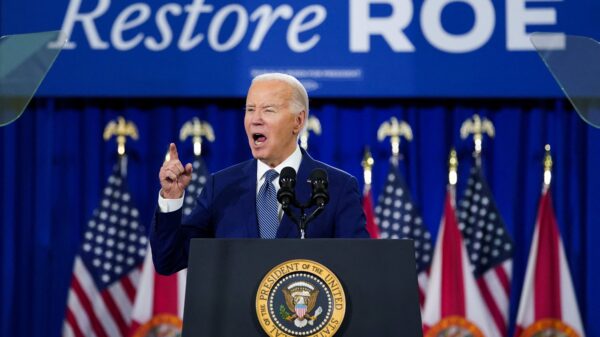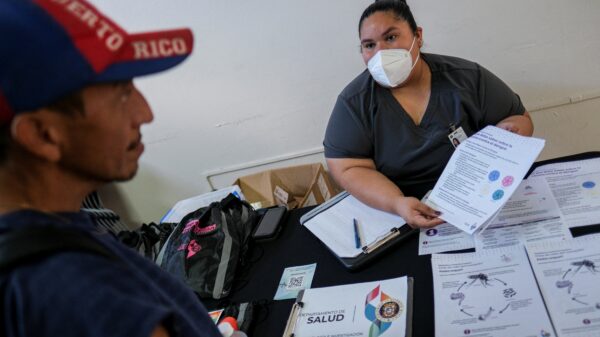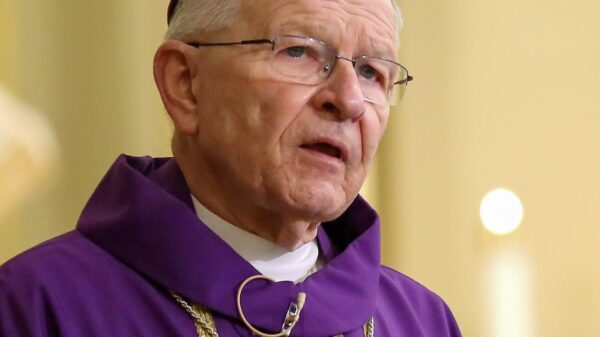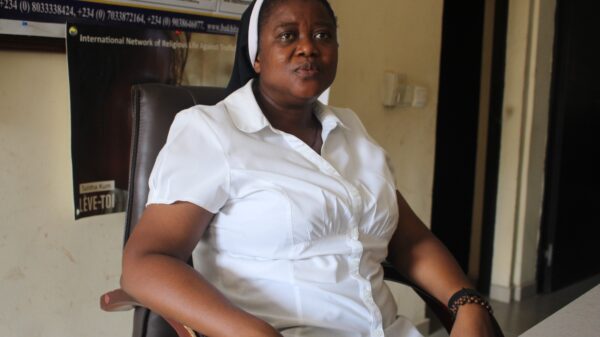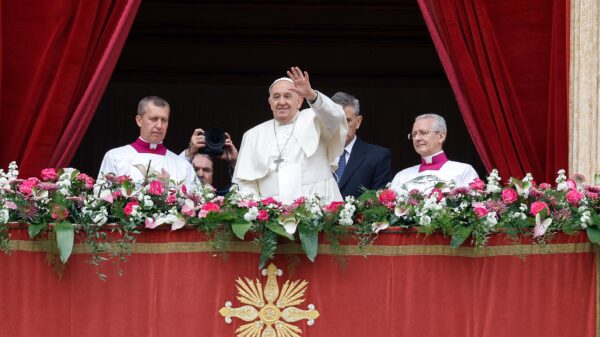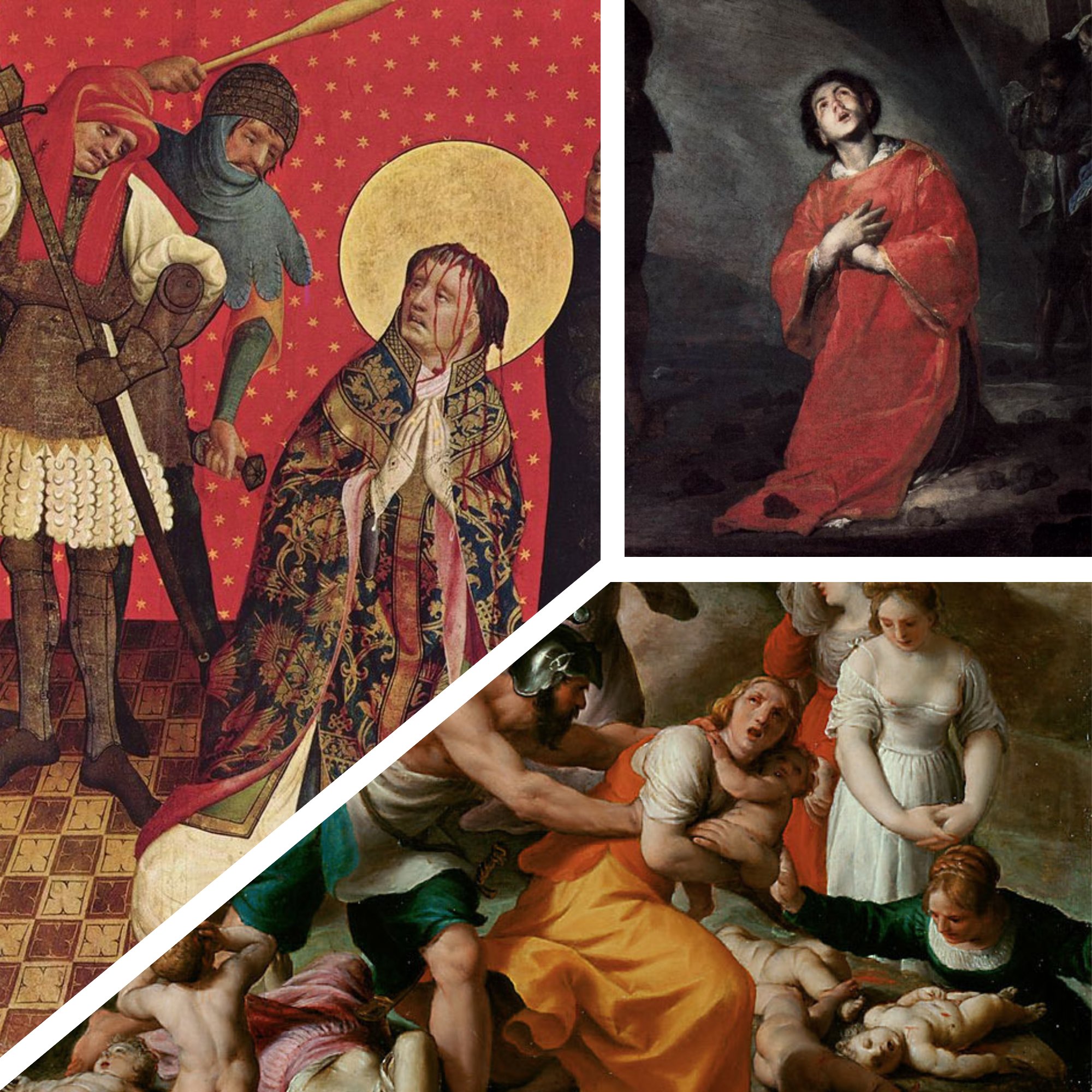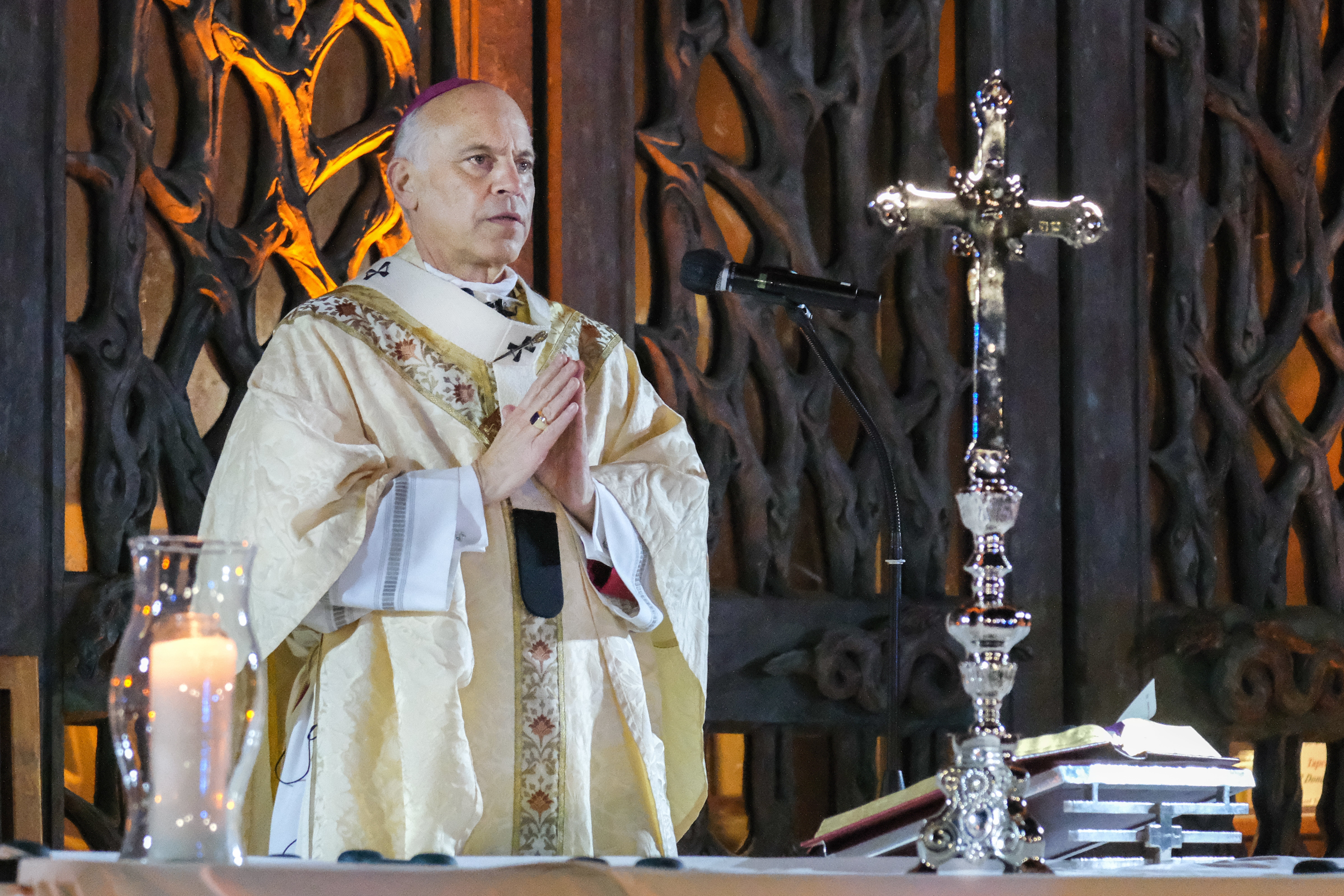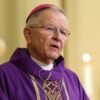By Russell Shaw
Have you ever wondered about those weekday feasts between Christmas and New Year’s Day?
They include two martyrs — St. Stephen and St. Thomas Becket — and the Holy Infants who lost their lives to Herod’s vicious pursuit of Christ. They also include the Apostle John, who wasn’t even born at the time of Jesus’ Nativity. What is the church trying to tell us by situating these particular feasts just after the joyful celebration of the Savior’s birth?
I was puzzling over this question when I came across something that suggests the answer. In St. Paul’s Second Letter to the Corinthians, he writes: “For you know the gracious act of our Lord Jesus Christ, that for your sake he became poor although he was rich, so that by his poverty you might become rich” (2 Cor 8:9).
In his inimitable fashion, St. Paul is here summing up the significance of Christ’s Incarnation, which we celebrate at Christmas. The Second Person of the Trinity took on human nature and entered into history (“he became poor”) for the precise purpose of redeeming us from sin (“so that … you might become rich”). This took place through the maternity of the Blessed Virgin — she who said yes to the angel — the chosen instrument by which the God-Man began his redemptive mission (as the solemnity of Mary, the Holy Mother of God, reminds us on New Year’s Day).
Those seemingly out-of-place feasts between Christmas and New Year fit perfectly in this framework.
Participating in redemption
Like Jesus himself, St. Stephen and St. Thomas Becket “became poor” — they gave up their lives and thereby joined the company of those who participate, by martyrdom, in the redemptive work of Christ. St. Stephen, the first martyr, whose death is recounted in the Acts of the Apostles, died proclaiming Christ. St. Thomas, a 12th-century archbishop of Canterbury, was slain at the king’s behest on Dec. 29, 1170, for upholding the rights of Christ’s church.
As for the Holy Infants, they died in place of Jesus as a counterpart to the chorus of angels who sang, on Christmas night, “Glory to God in the highest and on earth peace to those on whom his favor rest” (Lk 2:14).
St. John the Apostle? The magnificent prologue of his Gospel celebrates the Incarnation (“the Word became flesh and dwelt among us”) while recalling Christ’s passion and its result: “He came to what was his own, but his own people did not accept him … he gave power to become children of God” (Jn 1:11-12).
‘We rejoice and mourn at once’
In their own ways, then, these post-Christmas feasts belong where they are. T. S. Eliot understood that when writing his verse drama, “Murder in the Cathedral,” based (loosely) on the martyrdom of St. Thomas a Becket. In a Christmas sermon, Becket notes that Christmas is followed immediately by the feast of the first martyr, St. Stephen. An accident? “By no means,” the soon-to-be martyred archbishop declares, adding:
“Just as we rejoice and mourn at once, in the Birth and in the Passion of Our Lord, so also, in a smaller figure, we both rejoice and mourn in the death of martyrs. A martyr, a saint, is always made by the design of God, for His love of men, to warn them and to lead them, to bring them back to His ways. The true martyr is he who has become the instrument of God, who has lost his will in the will of God.”
Merry Christmas and Happy New Year — and note those martyrs’ feasts that the church wisely situates in between.
Russell Shaw, a veteran journalist and writer, is the author of more than 20 books, including three novels. His latest book is “Revitalizing Catholicism in America: Nine Tasks for Every Catholic.” (OSV)


